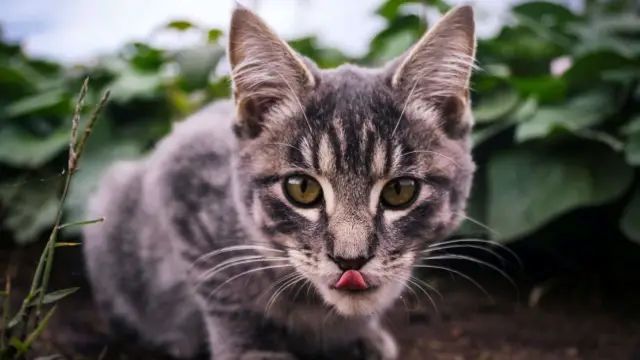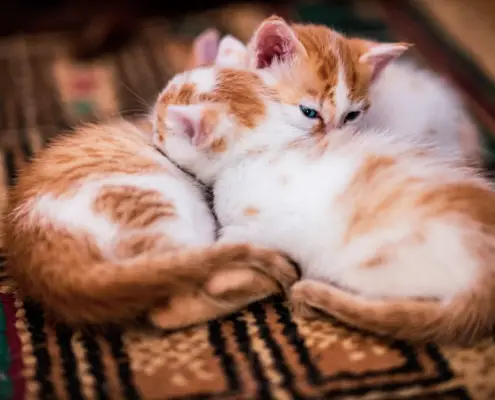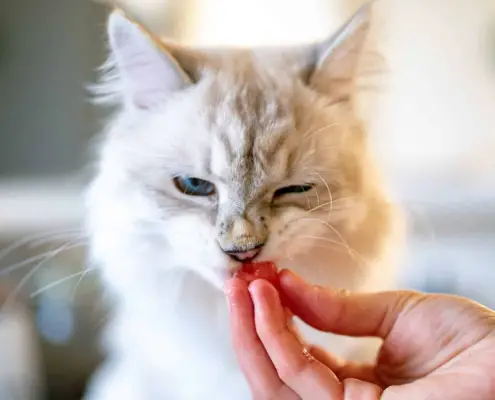
When it comes to keeping our furry friends safe, it’s important to be aware of the potential dangers that certain fruits can pose to our beloved cats. While fruits are generally considered healthy for humans, some can be toxic to cats. This comprehensive guide will provide you with valuable information on the most dangerous fruits for cats, including why they are harmful and what to do if your cat consumes them.
Why Are Certain Fruits Dangerous for Cats?
Cats have different digestive systems compared to humans, and their bodies may not be able to process certain fruits as efficiently. Some fruits contain substances that are toxic to cats, such as essential oils, seeds, or skin that can cause gastrointestinal upset or even organ failure. Additionally, cats lack certain enzymes required to break down certain compounds found in fruits, which can lead to adverse reactions. It’s crucial to be aware of these dangers in order to protect our feline friends.
Common Dangerous Fruits for Cats
While it may be tempting to share your favorite fruits with your cat, it’s important to know which ones can be harmful. Here are some common fruits that you should avoid giving to your cat:
Grapes and Raisins
Grapes and raisins can be extremely toxic to cats, causing kidney failure. Even a small amount can have a severe impact on your cat’s health. It’s best to keep these fruits out of your cat’s reach.
Citrus Fruits
Citrus fruits, such as oranges, lemons, and limes, contain essential oils that can irritate a cat’s digestive system. Ingesting citrus fruits can cause vomiting, diarrhea, and even central nervous system depression in some cases.
Avocado
Avocado contains a substance called persin, which is toxic to many animals, including cats. It can cause vomiting, diarrhea, and even heart problems. Make sure to keep avocados away from your cat’s reach.
Symptoms of Fruit Poisoning in Cats
If your cat has consumed a dangerous fruit, it’s important to be able to recognize the symptoms of fruit poisoning. The signs may vary depending on the fruit ingested, but common symptoms include:
- Vomiting
- Diarrhea
- Lethargy
- Loss of appetite
- Excessive drooling
- Difficulty breathing
- Abdominal pain
- Increased heart rate
If you notice any of these symptoms in your cat, it’s crucial to seek veterinary assistance immediately.
How to Prevent Cats from Accessing Dangerous Fruits
Prevention is key when it comes to keeping your cat safe from dangerous fruits. Here are some tips to help you keep your feline friend away from harmful fruits:
Store Fruits Properly
Make sure to store fruits in a secure place, such as a closed pantry or refrigerator. Cats are curious creatures and may try to explore countertops or other areas where fruits are accessible.
Use Deterrents
Consider using deterrents, such as citrus-scented sprays or barriers, to discourage your cat from approaching fruits. Cats generally dislike strong citrus smells, which can help keep them away from harmful fruits.
Educate Family Members
Ensure that everyone in your household is aware of the dangers of certain fruits for cats. Remind family members not to leave fruits unattended and to dispose of any fallen fruit immediately.
What to Do if Your Cat Consumes a Dangerous Fruit
If you suspect or know that your cat has consumed a dangerous fruit, it’s important to take immediate action. Here are some steps to follow:
- Contact Your Veterinarian: Call your veterinarian and explain the situation. They will provide you with guidance on what to do next based on the fruit ingested and your cat’s symptoms.
- Monitor Your Cat: Keep a close eye on your cat’s behavior and any changes in their health. Note down any symptoms or changes you observe to share with your veterinarian.
- Do Not Induce Vomiting: Unlike dogs, cats should not be induced to vomit at home. It’s best to follow your veterinarian’s advice in such situations.
Alternatives to Dangerous Fruits for Cats
While some fruits can be harmful to cats, there are plenty of safe fruits that you can offer as alternatives. Here are a few options that you can safely share with your feline friend:
Blueberries
Blueberries are packed with antioxidants and can be a healthy treat for cats. Offer them in moderation as an occasional snack.
Watermelon
Watermelon is a hydrating fruit that many cats enjoy. Remove the seeds and rind before offering it to your cat.
Apples
Apples are safe for cats, but make sure to remove the seeds and core before giving them to your cat as they contain cyanide. The flesh of the apple can be a great source of fiber.
Tips for Keeping Your Cat Safe Around Fruits
In addition to preventing access to dangerous fruits and offering safe alternatives, here are some additional tips to keep your cat safe around fruits:
- Supervise Your Cat: If you’re enjoying fruits, keep an eye on your cat and make sure they’re not trying to sneak a bite.
- Clean Up Fallen Fruit: Be diligent about cleaning up fallen fruit from your countertops or floors to avoid any accidental ingestion.
- Check Your Garden: If you have fruit trees or plants in your garden, ensure that your cat cannot access them. Some fruits can fall and become a potential hazard.
Consulting a Veterinarian About Dangerous Fruits for Cats
If you have any concerns or questions about dangerous fruits for cats, it’s always best to consult with your veterinarian. They can provide you with specific advice tailored to your cat’s needs and help address any potential risks or symptoms.
Conclusion
While fruits may seem innocent and healthy, it’s important to remember that not all fruits are safe for cats. Understanding which fruits can be harmful and taking necessary precautions will help keep your feline friend healthy and happy. By following the tips and advice in this guide, you can ensure that your cat stays safe around fruits and enjoys a long and vibrant life.
If you suspect your cat has consumed a dangerous fruit or is experiencing any symptoms of fruit poisoning, contact your veterinarian immediately. Your veterinarian is the best resource for specific advice and guidance tailored to your cat’s needs.
If you enjoyed my article, I would appreciate you sharing it with your network.

Sima Ndlebe
Sima writes for CatBuzz. He is interested in Cats, Health and Fitness, and Entrepreneurship.
Published: 13 October 2023
Related Articles
Disclaimer
The content found on CatBuzz.org is presented on an "as is" basis and is intended for general consumer information and education purposes only. Any utilization of this information is voluntary and solely at the user's own risk.
None of the articles or content should be regarded as, or used in place of, veterinary medical advice, diagnosis, or treatment. The information provided on the website is purely for educational and informational intentions and should not be considered a substitute for professional guidance from a veterinarian or other qualified expert. The articles are designed to inform consumers about veterinary healthcare and medical matters that may impact their cat's daily life. It should be noted that this website and its services do not constitute the practice of any form of veterinary medical advice, diagnosis, or treatment. CatBuzz.org explicitly disclaims any liability for any direct or indirect damages or losses that may arise from the use of or reliance on the information contained within the content.
Consumers must consult a veterinarian, veterinary specialist, or another qualified veterinary healthcare provider when seeking advice regarding their cat's health or medical conditions. It is important not to ignore, avoid, or postpone seeking medical advice from a veterinarian or other qualified veterinary healthcare provider solely based on information obtained from this website. If you believe that your cat may be experiencing a medical issue or condition, it is imperative to promptly contact a qualified veterinary healthcare professional.




